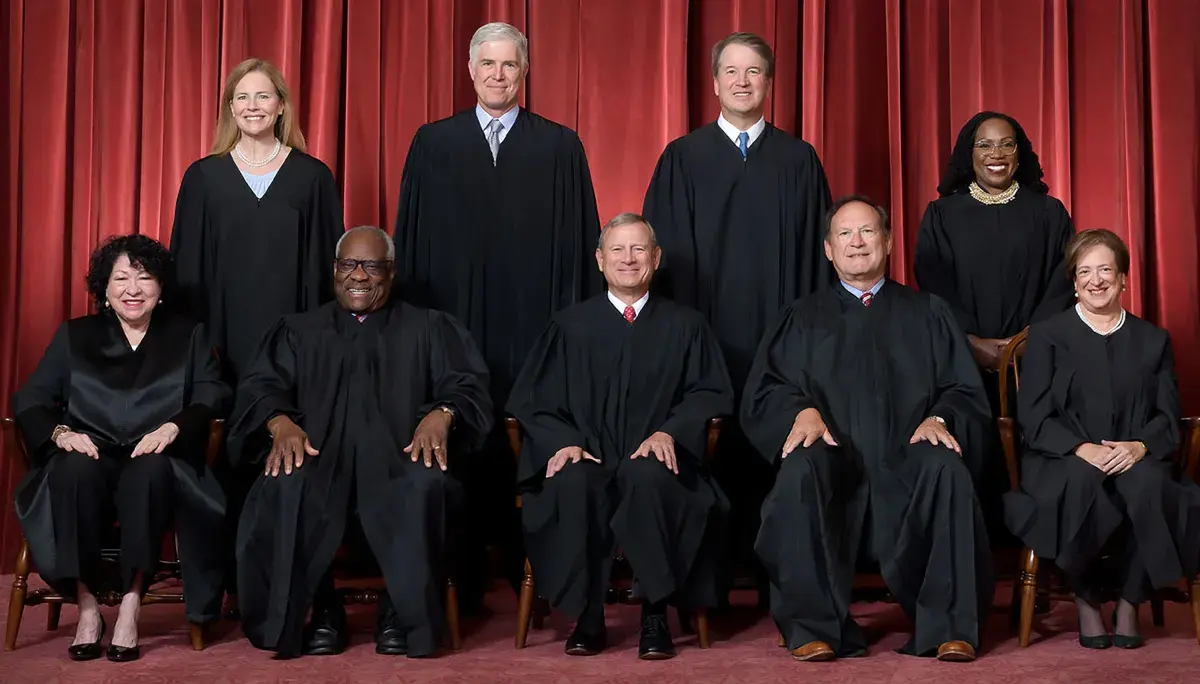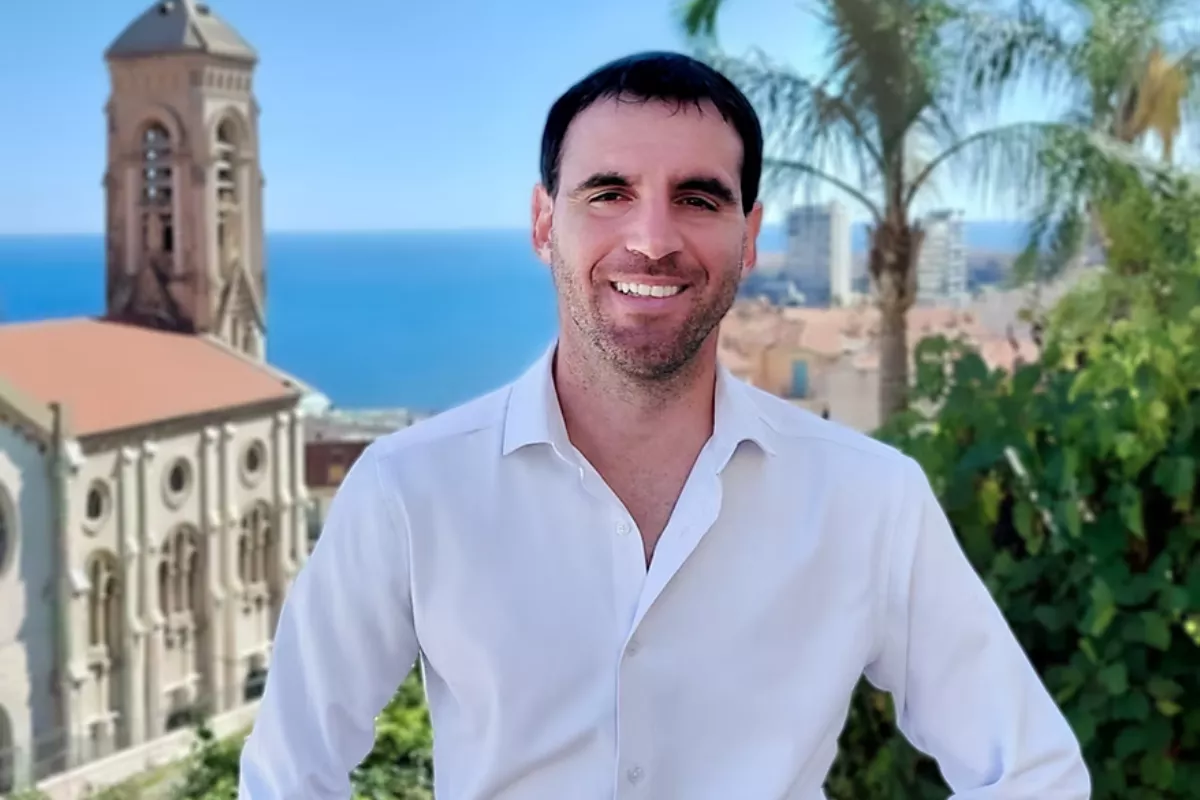Copyright Newsweek

The Supreme Court could soon decide whether to reopen the debate over same-sex marriage, 10 years after Obergefell v. Hodges legalized it nationwide. On Friday, the justices met privately to consider a petition from former Kentucky county clerk Kim Davis, who in 2015 refused to issue marriage licenses to same-sex couples. The appeal asks the Court to revisit Obergefell, citing First Amendment protections for religious freedom. The justices could announce as early as Monday whether they will hear the case, according to The Associated Press. What To Know Obergefell v. Hodges (2015) is the landmark U.S. Supreme Court case that legalized same-sex marriage nationwide. In a 5—4 decision, the Court held that the Fourteenth Amendment guarantees same-sex couples the fundamental right to marry, requiring all states to issue and recognize such marriages. The ruling, written by Justice Anthony Kennedy, established marriage equality as a constitutional right under both the Due Process and Equal Protection Clauses. The Obergefell v. Hodges ruling is being questioned again through a petition brought by former Kentucky county clerk Kim Davis, who refused to issue marriage licenses to same-sex couples citing her religious beliefs. Davis argues that her actions were protected by the First Amendment’s guarantee of free exercise of religion and that she should not be held personally liable for damages. Her appeal asks the Supreme Court to reconsider Obergefell, claiming the 2015 decision was wrongly decided and not grounded in the nation’s history or constitutional text. Below is where each justice currently stands on same-sex marriage, based on past rulings, public statements, and recent reporting. What Has Chief Justice John G. Roberts Jr. Said About Gay Marriage? Chief Justice Roberts dissented in Obergefell v. Hodges (2015), arguing that the Constitution "does not take a position on any one theory of marriage." In his dissent, he wrote that the majority had effectively "closed the debate and enacted their own vision of marriage as a matter of constitutional law," calling the decision a policy question that should have been left to voters and legislatures. Since then, Roberts has not publicly called for overturning Obergefell or signaled a willingness to revisit it. His record instead reflects restraint and deference to institutional legitimacy. He joined the six-justice majority in 303 Creative v. Elenis (2023), in which the Court ruled 6—3 that a Colorado web designer could not be compelled to create websites for same-sex weddings, finding that such a requirement would violate the First Amendment’s free speech protections. While critics saw the ruling as a setback for LGBTQ rights, it did not challenge the legality of same-sex marriage itself. Roberts’s votes in recent years—such as his decision to deny review in cases involving service refusals—suggest a preference to limit rather than undo Obergefell. His approach emphasizes judicial minimalism and respect for established reliance interests, consistent with his broader philosophy of institutional stability. What Has Justice Clarence Thomas Said About Gay Marriage? Justice Thomas remains the Court’s most vocal critic of Obergefell. In his 2015 dissent, he accused the majority of straying from the Constitution’s text and "roaming at large in the constitutional field guided only by their personal views." He rejected the idea that government recognition could confer dignity, writing, "Human dignity is innate within every person. The government cannot bestow dignity, and it cannot take it away." Thomas reiterated this view in 2020 when the Court denied review in Davis’s earlier appeal. In a separate opinion, he said the case illustrated how Obergefell had "ruinous consequences for religious liberty." Following the Dobbs v. Jackson Women’s Health Organization decision in 2022, which overturned Roe v. Wade, Thomas urged the Court to reconsider other substantive due process precedents, explicitly naming Obergefell. His stance has become a cornerstone for litigants like Davis who seek to reverse or narrow the marriage-equality ruling. As AP reporting noted, Davis’s current petition "repeatedly invoked the words of Justice Clarence Thomas," underscoring his continued influence over the movement to revisit the 2015 precedent. What Has Justice Samuel A. Alito Jr. Said About Gay Marriage? Justice Alito joined Thomas in dissenting from Obergefell in 2015, writing that the Due Process Clause protects only rights "deeply rooted in this Nation’s history and tradition," which he said same-sex marriage was not. He warned that those who disagreed with the ruling "will risk being labeled as bigots." Although Alito has continued to criticize Obergefell, he has more recently sought to distance himself from calls for its reversal. The Associated Press reported in November 2025 that Alito "has continued to criticize the decision but said recently he was not advocating that it be overturned." Alito joined the 303 Creative majority, framing his position in terms of speech rather than marriage rights. His questioning in recent religious-liberty cases suggests concern about compelled expression but not necessarily an intent to dismantle Obergefell outright. What Has Justice Sonia Sotomayor Said About Gay Marriage? Justice Sotomayor was part of the Obergefell majority and has consistently defended the rights of same-sex couples. During arguments in that case, she rejected the notion that allowing same-sex marriage posed any threat to individual liberty, saying, "I’m sorry. Nobody is taking that away from anybody." In 303 Creative, she authored a sharp dissent, warning that the ruling "grants a license to discriminate." She argued that allowing businesses to refuse services for same-sex weddings undermines the equality guaranteed by Obergefell and public-accommodation laws. Sotomayor’s record and public remarks position her as one of the Court’s strongest defenders of LGBTQ rights. What Has Justice Elena Kagan Said About Gay Marriage? Justice Kagan, who officiated a same-sex wedding before joining the Court, joined the Obergefell majority and has consistently upheld LGBTQ protections. She joined Sotomayor’s dissent in 303 Creative, maintaining that allowing exemptions for expressive services risks eroding the substance of marriage equality. Her questioning in recent oral arguments reflects skepticism toward attempts to narrow or reframe Obergefell through free-speech litigation. What Has Justice Neil M. Gorsuch Said About Gay Marriage? Justice Gorsuch, appointed in 2017, wrote the 303 Creative majority opinion. He ruled that the First Amendment barred Colorado from compelling designer Lorie Smith to create websites celebrating same-sex weddings, writing that "the state seeks to force an individual to speak contrary to her conscience." His decision, while celebrated by religious-liberty advocates, did not call Obergefell into question. Instead, Gorsuch has drawn a distinction between the right to marry and the right to decline expressive participation in a ceremony. His jurisprudence reflects a balance between protecting speech and maintaining constitutional precedents. What Has Justice Brett M. Kavanaugh Said About Gay Marriage? Justice Kavanaugh, who joined the Court in 2018, has avoided public comment on Obergefell. During his confirmation hearings, he declined to say whether he agreed with the ruling. Since joining the Court, he has voted to uphold free-speech claims related to same-sex weddings, including joining the 303 Creative majority. In other cases, he has signaled respect for precedent and institutional stability. His record suggests support for limiting state enforcement in expressive contexts without revisiting the underlying right to marry. What Has Justice Amy Coney Barrett Said About Gay Marriage? Justice Barrett, appointed in 2020, joined the 303 Creative majority but has since emphasized the limits of revisiting Obergefell. In an October 2025 interview, she noted that the decision has created "concrete reliance interests," meaning that millions of Americans have built their lives, families, and legal arrangements around it. She said those interests are a "stare decisis factor weighing against reversal." Although her views on substantive due process are conservative, Barrett’s acknowledgment of reliance interests aligns her more closely with Roberts in resisting a broad rollback of marriage equality. What Has Justice Ketanji Brown Jackson Said About Gay Marriage? Justice Jackson, the Court’s newest member, joined Sotomayor and Kagan in the 303 Creative dissent. During her 2022 confirmation hearings, she stated that constitutional rights "limit regulation, even if people are regulating pursuant to their sincerely held religious beliefs." Her subsequent votes and opinions have reflected a consistent defense of Obergefell and related LGBTQ protections. The Broader Context The Davis v. Ermold petition marks the first direct request since Dobbs for the Court to revisit Obergefell. Legal experts say it remains a "long shot," given that the Court can address Davis’s liability without reopening the 2015 precedent. Still, the appeal underscores growing tension between free-exercise claims and established civil rights. As The Guardian reported, Davis’s opponents warned that overturning Obergefell "could call into question the constitutional status of existing same-sex marriages and disrupt the lives of those who have built their families around it." With nearly 800,000 same-sex couples now married in the U.S., any move by the Court could have far-reaching legal and personal consequences.



